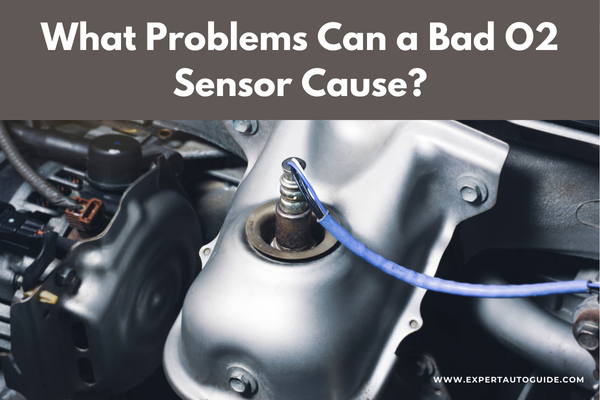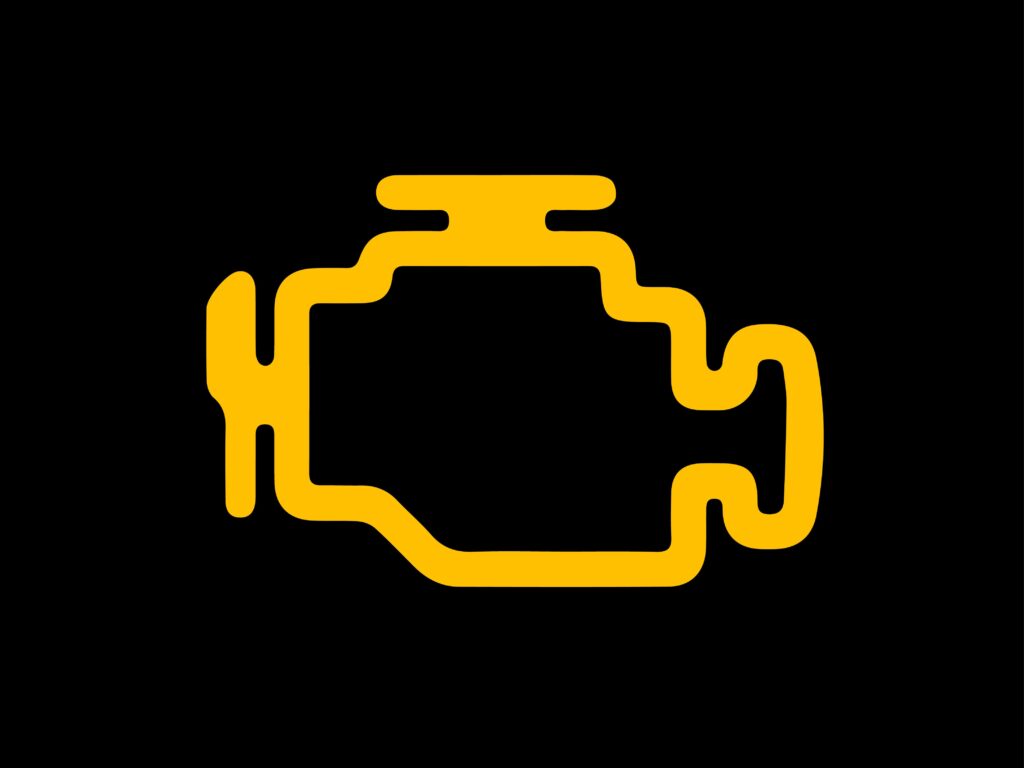If your vehicle isn’t running quite right, a bad O2 sensor could be the culprit. This small yet essential component measures the oxygen levels in your exhaust and helps keep your engine’s air-fuel mixture balanced. When it fails, it can trigger rough idling, poor acceleration, higher fuel consumption, or even engine misfires. Understanding these issues early can save you time, money, and further damage to your vehicle’s performance.

What is an O2 Sensor?
An O2 sensor, or oxygen sensor, is a crucial part of your car’s emissions and engine management system. Its job is simple but essential: it measures how much oxygen is in your car’s exhaust. This little component plays a significant role in keeping your engine efficient and your emissions low. Think of it as the vehicle’s way of “sniffing” to ensure the engine runs smoothly.
How Does an O2 Sensor Work?
The O2 sensor constantly samples the gases leaving your engine through the exhaust system. It compares the amount of oxygen in the exhaust to the oxygen in the surrounding air. This data gets sent to your car’s electronic control unit (ECU), which adjusts the air-fuel mixture in real-time. Without this feedback loop, engines wouldn’t be nearly as efficient today.
Where is an O2 Sensor Located?
You’ll typically find O2 sensors in the exhaust system:
- Before the catalytic converter: Known as upstream sensors, these measure the oxygen levels directly after combustion.
- After the catalytic converter: Downstream sensors ensure the catalytic converter is working effectively by rechecking oxygen levels.
Typically, modern cars have between two and four oxygen sensors. Their placement ensures the system can monitor and optimize the air-fuel ratio precisely.
The Role of an O2 Sensor in Vehicle Performance
Oxygen sensors are all about balance. They help maintain the ideal air-to-fuel ratio of 14.7 parts air to 1 part fuel, also known as stoichiometric balance. Why is this important? This delicate balance ensures:
- Optimal engine performance
- Lower fuel consumption
- Reduced harmful emissions
Too much air in the mix leads to a lean burn, risking engine damage or failure. Too much fuel results in a rich burn, wasting gas and increasing pollution. The O2 sensor keeps these issues in check.
Signs of a Faulty O2 Sensor
When an O2 sensor starts to fail or gives inaccurate readings, you’ll notice symptoms like:
- Check engine light turning on.
- Poor gas mileage.
- Irregular engine idling.
- Increased emissions.
Ignoring these signs can lead to more significant problems down the road, so it’s always best to address sensor issues sooner rather than later.
Why Does Your O2 Sensor Matter?
Without a working oxygen sensor, your car’s ECU can’t adjust the air-fuel mixture correctly. This leads to decreased fuel efficiency, higher emissions, and potential damage to expensive parts, like the catalytic converter. It’s a seemingly small component with a massive impact.
Common Problems Caused by a Faulty O2 Sensor
Your car’s oxygen sensor plays a major role in ensuring the engine runs efficiently and cleanly. However, when it malfunctions, it can lead to a series of noticeable and frustrating performance problems. Let’s break down some of the most common issues you might face when the sensor stops doing its job properly.
Rough Engine Idle
Does your car shake or stutter when it’s at a standstill? A faulty O2 sensor could be behind it. When the sensor isn’t providing accurate oxygen level data, the engine’s air-fuel mixture can go off balance. This imbalance forces your engine to work harder than necessary, often leading to a rough idle. Think of it like trying to breathe through a straw—you’re working harder but getting less. If left unchecked, this can stress your engine and affect its long-term reliability.
Decreased Fuel Efficiency
Noticing more frequent visits to the gas station? A bad O2 sensor could be the reason your fuel efficiency is dropping. When the sensor fails, the vehicle’s computer cannot correctly adjust the air-fuel ratio, often causing the engine to run “rich.” This means the engine is burning more fuel than it actually needs. Over time, this not only adds up in fuel costs but also increases harmful emissions from your vehicle.
Engine Misfires
A failing oxygen sensor can cause incomplete combustion in the engine, leading to misfires. Essentially, the inaccurate data from the sensor means your engine is firing at the wrong time or not at all in certain cylinders. Imagine trying to use a mismatched key in a lock—it just doesn’t work correctly. You might notice jerking, hesitation, or even a backfire. This is more than just a nuisance; prolonged misfiring can damage other parts of the engine.
Poor Acceleration
Does your car feel sluggish when you press down on the gas pedal? A faulty O2 sensor can create poor throttle response, leaving you frustrated in moments when you need power the most—like merging onto highways or overtaking. The sensor’s bad readings confuse the engine’s computer, which then struggles to supply the right mix of air and fuel. It’s like trying to run a race while breathing through clogged nose—a lack of oxygen slows everything down.
Failed Emissions Tests
One of the most telling signs of a bad O2 sensor is your car failing an emissions test. A faulty sensor disrupts the air-fuel mixture, causing excessive pollutants to pour out of the exhaust. In many areas, passing an emissions test is a legal requirement for vehicle registration. Ignoring this issue could not only damage the environment but also leave you with hefty repair fines or rejected vehicle inspection papers.
Do these issues sound familiar? If you’re noticing any of these problems, it might be time to check your O2 sensor before things escalate.
Signs of a Failing O2 Sensor
A failing O2 sensor can wreak havoc on your vehicle’s performance. It’s more than just an annoying check engine light. It impacts everything from efficiency to emissions. Here are some common signs that your O2 sensor might be on its last legs.
Check Engine Light Activation

When the check engine light turns on, many drivers brush it off as nothing serious. However, this light often alerts you to underlying issues, such as an O2 sensor failure. The sensor provides crucial data to your engine’s computer; when it fails, inaccurate readings trigger the light. Ignoring this warning could lead to further, costlier engine troubles.
Bad Odors from Exhaust
Have you ever caught a strong, sulfur-like smell coming from your exhaust? It’s not normal. A failing O2 sensor can cause an overly rich air-fuel mixture, leading to incomplete combustion. This results in an odor similar to rotten eggs—unpleasant to drive with and harmful to the environment.
Increased Engine Load
A bad O2 sensor throws off your engine’s air-fuel balance, making it run either too lean or too rich. This imbalance forces your engine to work harder than necessary, increasing the strain on other components. Over time, this extra load can reduce your car’s performance and even shorten the lifespan of your engine.
Poor Engine Performance
If you’re noticing a drop in your car’s overall performance, the oxygen sensor might be the root cause. Symptoms such as stalling, jerking, or a sluggish response when you hit the gas are common. It’s like running a marathon on bad advice—your engine isn’t getting the right signals to perform at its best. Ignoring these signs might lead to more severe engine failures.
Recognizing these symptoms early can save you from long-term damage and costly repairs. Always consult a trusted mechanic if you suspect an O2 sensor issue.
Consequences of Ignoring O2 Sensor Problems
When your car’s O2 sensor fails and you leave it unchecked, the consequences can stack up fast. The oxygen sensor isn’t just there for emissions; it plays a crucial role in how your engine operates day-to-day. Ignoring its failure can lead to significant problems in the long run.
Long-term Engine Damage
A faulty O2 sensor disrupts the air-fuel mixture in your engine, often causing it to run too rich or too lean. This imbalance doesn’t just hurt fuel economy; it puts your engine under continuous stress. Over time, this can lead to severe engine problems like:
- Soot buildup on engine valves and pistons, which reduces efficiency.
- Spark plug fouling, causing misfires.
- Catalytic converter overheating and failure, an expensive repair often tied to prolonged O2 sensor issues.
Think of your car’s engine as an athlete. If it’s constantly breathing the wrong “air” (too much fuel or not enough), performance will plummet, and it risks injury over time. Taking care of a bad O2 sensor early helps avoid such wear and tear.
Increased Repair Costs
Ignoring a malfunctioning O2 sensor is like kicking the can down the road. What starts as a smaller, less expensive fix can snowball into costly repairs. For instance:
- The mismanagement of air and fuel due to faulty O2 readings can lead to irreparable damage to the catalytic converter. This repair can cost upwards of $1,000 or more in some vehicles.
- Prolonged engine misfires or rough running, caused by inaccurate sensor readings, often demand labor-intensive repairs like engine rebuilds.
- Additional fuel consumption also costs you more at the pump over weeks and months.
Replacing the sensor might seem pricey initially, but it’s far less expensive than the repairs you’ll face after long-term neglect. It’s a no-brainer financially.
Regulatory Issues
Ignoring O2 sensor problems doesn’t just affect vehicle health—it can put you on the wrong side of emissions regulations. Most modern vehicles are required to meet emissions standards, and a bad sensor makes it impossible for your car to pass an inspection. You might face:
- Failed emissions tests, leading to fines or inability to renew registration in certain states.
- Fines for excessive pollutants in regions enforcing strict environmental laws.
If your car contributes more emissions than allowed, it’s not just bad for the environment—it’s bad for your wallet. In some areas, failing to fix emissions-related issues promptly can result in tickets or increased taxes on your vehicles. Why gamble when timely action avoids these headaches?
Ignoring these consequences doesn’t just cost you money or harm your engine—it can also take away your ability to legally drive in certain regions. Protect your engine, your budget, and your peace of mind by addressing any O2 sensor problems as soon as possible.
A functional O2 sensor is essential for keeping your engine efficient and your emissions in check. When it fails, the ripple effects can cost you in performance, repairs, and even legal compliance.
Regularly checking this sensor can save you money and prevent larger mechanical issues. If your car shows warning signs, act sooner rather than later.
Your engine and wallet will thank you. Have you checked your O2 sensor lately?
